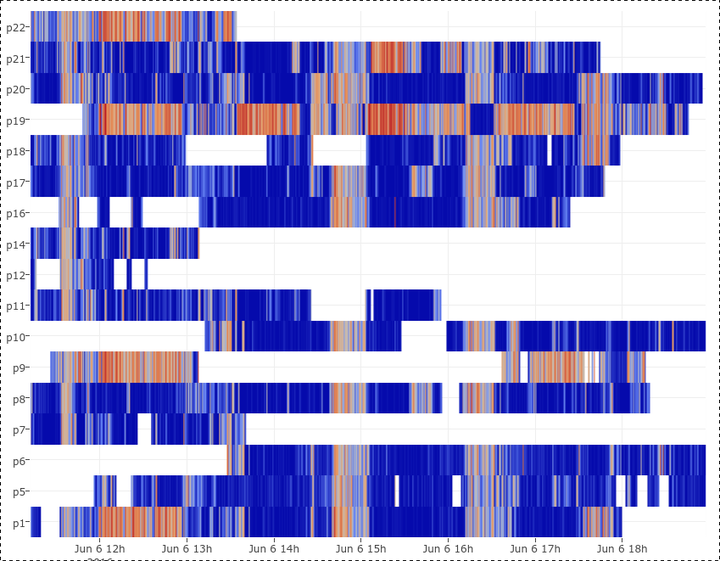Human Nature: The Subject and the Headache of IoT-Based Sociometric Studies
 Synchronized timeline of microphone activity
Synchronized timeline of microphone activityAbstract
Sociometry has been recently placed on the verge of a new era by first attempts to utilize Internet of Things (IoT) technologies in quantitative studies of social relationships. More and more results of traditional questionnaires and observations, which are prone to bias and human errors, are about to be verified with a supposedly reliable source: data collected by a wireless sensor network (WSN) monitoring individual and group behavior. It may be expected that the potential and availability of sensing devices will soon entirely redefine the practices of sociometry and alleviate its present limitations. However, this revolution requires much more effort than direct application of common IoT solutions. The collision of curious, yet careless human nature with typical sensing devices leads to unique challenges in WSNs. In this paper we share our experiences from deployments of our sociometric system in two distinct environments. Initially, we studied behavior in software development companies, then we conducted a pioneering instrumentation of emulated space missions in a confined habitat. Despite having developed hardware-software platform dedicated to this end, our research group encountered a number of issues specific to the human nature. While some of them were predictable, but inevitable with a limited budget for the research, others were entirely unexpected and had serious consequences.